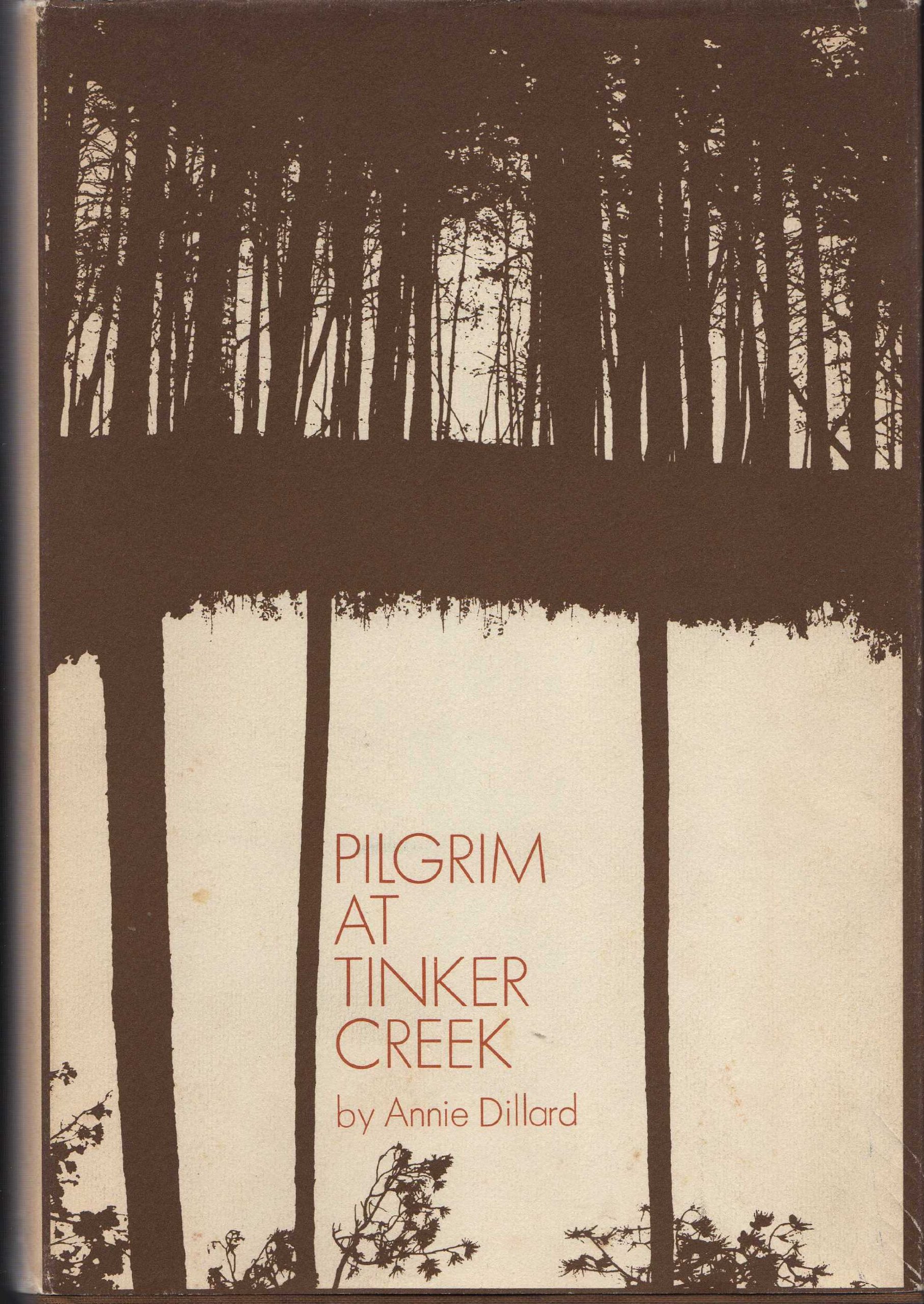Hardcover, 271 pages
English language
Published 1974 by Harper's Magazine Press.

Hardcover, 271 pages
English language
Published 1974 by Harper's Magazine Press.
Pilgrim at Tinker Creek is a personal narrative. It highlights one year's explorations on foot in the author's own neighborhood, one year's assaults and curiosities. Here are both beauty and terror: the vision of a cedar tree charged with light, and the sight of a crippled moth crawling on the ground, his wings crumbled and glued to his back.
In the summer, Annie Dillard stalks muskrats in the creek and thinks about wave mechanics; in the fall, she watches a monarch butterfly migration and dreams of Arctic caribou. She tries to con a coot; she collects pond water and examines it under a microscope on her kitchen table; she frightens frogs. She unties a snakeskin, witnesses a flood, and plays "King of the Meadow" with a field of grasshoppers. Throughout the year, she brings anecdotes and bizarre bits of information to bear on what she experiences.
"I am …
Pilgrim at Tinker Creek is a personal narrative. It highlights one year's explorations on foot in the author's own neighborhood, one year's assaults and curiosities. Here are both beauty and terror: the vision of a cedar tree charged with light, and the sight of a crippled moth crawling on the ground, his wings crumbled and glued to his back.
In the summer, Annie Dillard stalks muskrats in the creek and thinks about wave mechanics; in the fall, she watches a monarch butterfly migration and dreams of Arctic caribou. She tries to con a coot; she collects pond water and examines it under a microscope on her kitchen table; she frightens frogs. She unties a snakeskin, witnesses a flood, and plays "King of the Meadow" with a field of grasshoppers. Throughout the year, she brings anecdotes and bizarre bits of information to bear on what she experiences.
"I am no scientist," she says of herself. "I am a wanderer with a background in theology and a penchant for quirky facts.
"As a thinker I keep discovering that beauty itself is as much a fact, and a mystery, as the most gruesome parasitic roundworm. I consider nature's facts — its beautiful and grotesque forms and events — in terms of their import to thought and their impetus to the spirit. In nature I find grace tangled in a rapture with violence; I find an intricate landscape whose forms are fringed in death; I find mystery, newness, and a kind of exuberant, spendthrift energy."